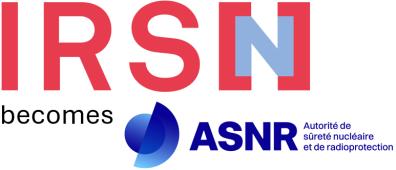The Sanda project
The SANDA project (Supplying Accurate Nuclear Data for energy and non-energy Applications) was launched in September 2019 and will initially run for four years. The aim is to improve the nuclear data used to simulate particle pathways for applications in the fields of radiological protection, radiotherapy, assessing criticality risks and carrying out neutronics calculations.
Thirty-five partners, based in eighteen European countries, are involved in this project, which is funded by the European Commission under the Euratom H2020 (2018-2019) call for proposals and coordinated by CIEMAT (Centro de Investigaciones Energéticas, Medioambientales y Tecnológicas, Spain). IRSN, through our Neutronics and Criticality Safety Department (SNC), is involved in the project, to assess nuclear data on different isotopes, and to validate new data produced as part of the project using MORET 5 code (a Monte Carlo code developed at the SNC that can be used to accurately simulate neutron pathways in 3-dimensional space and their interactions with matter).
Background
Nuclear data represents the probability of physical interactions between atomic nuclei and particles. This data is needed to model simulations of the physical phenomena that occur as particles travel through matter. It is used in many applications: in the design and operation of nuclear power plants, in nuclear waste management, to assess criticality risks (the risk of uncontrolled fission chain reactions), as well as in radiological protection and the production of radio-isotopes. The reliability of the results obtained from simulation tools and, therefore, of our assessments of safety margins, is dependent on the quality of this data and how it is managed.
To optimize safety margins, the SANDA project is aimed at improving nuclear data and deepening our understanding of the uncertainties surrounding this data so that it can be used in neutronics, criticality and radiological protection simulations.
Work packages and expected results
The SANDA project entails working on every step in the process of producing and validating nuclear data.
The project is divided into five work packages (WPs) designed to make nuclear data more robust, with a working group set up to coordinate the project and promote and communicate on the work carried out under each WP:
WP1: Developing new innovative detection devices
The WP1 working group aims to develop new detectors and improve experimental systems with a view to making nuclear data measurements more precise. These detectors should be capable of taking higher-resolution cross section measurements the isotopes of interest for WP2.
WP2: New nuclear data measurements for applications in the energy and non-energy sectors
This WP entails taking new measurements of neutron beam interactions on samples that will be used to refine the precision of the nuclear data produced in WP4. Some of the experiments carried out under this WP will use the detectors developed under WP1 and the targets prepared under WP3. The experimental data obtained will be stored in the international EXFOR database
WP3: Preparing samples that will be used to improve nuclear data measurements
WP3 focuses on producing samples enriched with the isotopes used in the nuclear data measurements obtained under WP2. It coordinates the activities undertaken by producer laboratories as well as use of the samples by the various partners working on the SANDA project, with a view to optimizing the European resources allocated to the project.
WP3 will also start work on drawing up a feasibility study on the construction of an isotope separator, a facility used to produce extremely pure materials required for certain radioactive targets which, at present, does not exist in Europe.
WP4: Evaluating nuclear data and uncertainties
WP4 aims to develop open-source tools for evaluating nuclear data by improving phenomenological and microscopic models. The measurements resulting from WP2 will be evaluated to obtain data that can be used by simulation codes for validation under WP5. WP4 will also be particularly interested in developing methods for evaluating uncertainties associated with the models.
WP5: Validation and integral experiments
The nuclear data obtained as a result of this research program will be validated using integral experiments designed to represent user requirements.
Validation will entail simulating existing experiments that have produced experimental data that is available mainly in OECD databases (ICSBEP, IRPhE and SINBAD) using the new data obtained thanks to the SANDA project. IRSN will carry out this simulation using the MORET code, one of the key advantages of which is its enormous database of experimental data on reactor physics and criticality.
To add other configurations not covered by experiments that have already been performed, further experiments will be carried out at existing experimental facilities. In particular, these will focus on actinides and structural materials.
The validation process will include sensitivity analysis and impact studies, feedback from which can be used by the WP4 assessors to determine what data needs to be improved. The aim of this research is that the nuclear data obtained and validated under the SANDA Project can be used in the future version 3.4 of JEFF, the European suite of nuclear data libraries.
